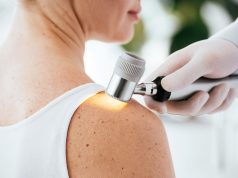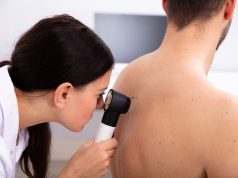Leveraging whole slide embeddings from pretrained machine learning models can improve diagnosis of nonmelanoma skin cancer
By Elana Gotkine HealthDay Reporter
TUESDAY, April 29, 2025 (HealthDay News) — Leveraging whole slide embedding from pretrained foundation models (FMs) improves nonmelanoma skin cancer (NMSC) diagnosis, according to a study presented at the annual meeting of the American Association for Cancer Research, held from April 25 to 30 in Chicago.
Spencer Ellis, from the University of Chicago, and colleagues examined the effectiveness of general purpose FMs for diagnosis of NMSC, specifically in resource-constrained environments. Three pathology FMs (UNI, PRISM, and Prov-GigaPath) were evaluated, as was a ResNet18 baseline model. Data were included for 2,130 whole-slide images from 553 suspected NMSC biopsy samples from 455 participants: 706 normal tissue; 638 Bowen disease; 575 basal cell carcinoma; and 211 invasive squamous cell carcinoma.
The researchers found that all three FMs significantly outperformed ResNet18 (mean area under the receiver operating characteristic curve [AUROC], 0.805). The overall best model used the PRISM tile embeddings aggregated using PRISM’s intrinsic Perceiver network, which trained a multilayer perceptron (MLP) model to predict the subtype of NMSC (AUROC, 0.925). Using attention-based multi-instance learning to aggregate tile embeddings to train an MLP model was optimal for the UNI and Prov-GigaPath models (mean AUROCs, 0.913 and 0.908, respectively). The simplest method with logistic regression of global average pooling aggregated embeddings could attain reasonable results for PRISM, UNI, and Prov-GigaPath (mean AUROCs, 0.882, 0.865, and 0.855, respectively).
“Our results demonstrate that pretrained machine learning models have the potential to aid diagnosis of NMSC, which might be particularly beneficial in resource-limited settings,” coauthor Steven Song, from the Pritzker School of Medicine at the University of Chicago, said in a statement.
Copyright © 2025 HealthDay. All rights reserved.








